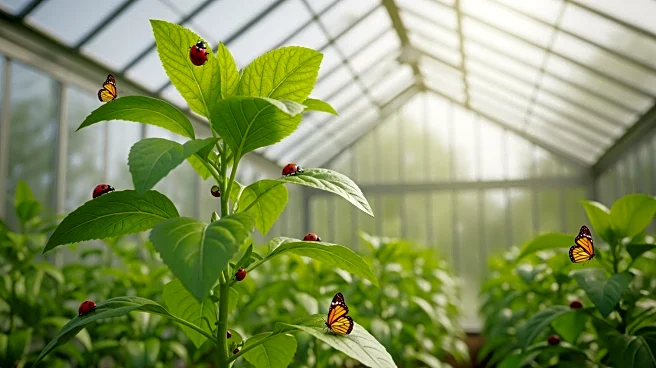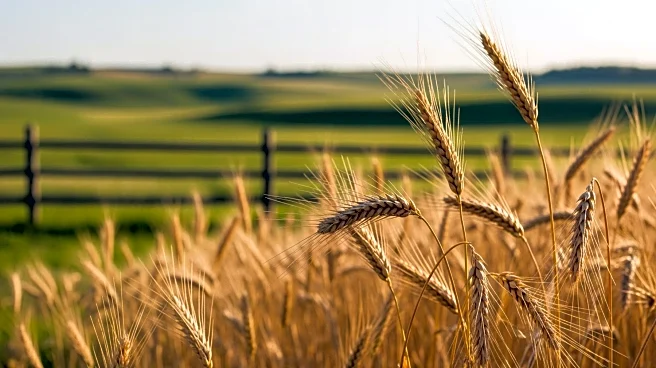What's Happening?
The North America biorationals market is experiencing significant growth, with projections indicating an increase from USD 5.13 billion in 2024 to USD 8.85 billion by 2033, at a compound annual growth rate
(CAGR) of 6.24%. This expansion is fueled by rising demand for eco-friendly pest control and sustainable farming practices. Key players such as Valent BioSciences LLC, FMC Corporation, and Certis USA LLC are leading the charge with new product launches and strategic mergers. Recent developments include the introduction of bio-insecticides and bio-fungicides targeting commercial agriculture, emphasizing organic and high-value crops. Additionally, government approvals and investments are bolstering the market, with the U.S. Environmental Protection Agency expediting approval for botanical-based biorational pesticides.
Why It's Important?
The growth of the biorationals market is crucial for advancing sustainable agriculture practices in North America. As consumer demand for residue-free produce increases, the adoption of biorational products offers a viable solution for reducing chemical residues and improving soil health. This shift not only benefits the environment but also supports the agricultural sector's transition towards more sustainable pest management solutions. Companies investing in biorational technologies stand to gain a competitive edge in the market, while farmers benefit from improved crop yields and reduced environmental impact. The market's expansion reflects broader trends in organic farming and chemical reduction, aligning with global efforts to promote eco-friendly agricultural practices.
What's Next?
Looking ahead, the biorationals market is poised for further growth as regulatory pressures increase and consumer preferences shift towards sustainable products. Major stakeholders, including agricultural companies and government agencies, are likely to continue investing in research and development to enhance biorational technologies. The integration of biologicals with chemical crop solutions is expected to boost sustainable farming practices, while ongoing mergers and acquisitions may consolidate market leadership. As the market evolves, stakeholders will need to navigate regulatory landscapes and consumer demands to capitalize on emerging opportunities in eco-friendly pest management.
Beyond the Headlines
The expansion of the biorationals market highlights a broader cultural shift towards sustainability and environmental consciousness. As agricultural practices evolve, ethical considerations regarding pesticide use and environmental impact become increasingly important. The adoption of biorational products reflects a growing awareness of the need to balance agricultural productivity with ecological preservation. This trend may influence public policy and consumer behavior, driving further innovation in sustainable farming technologies and practices.









